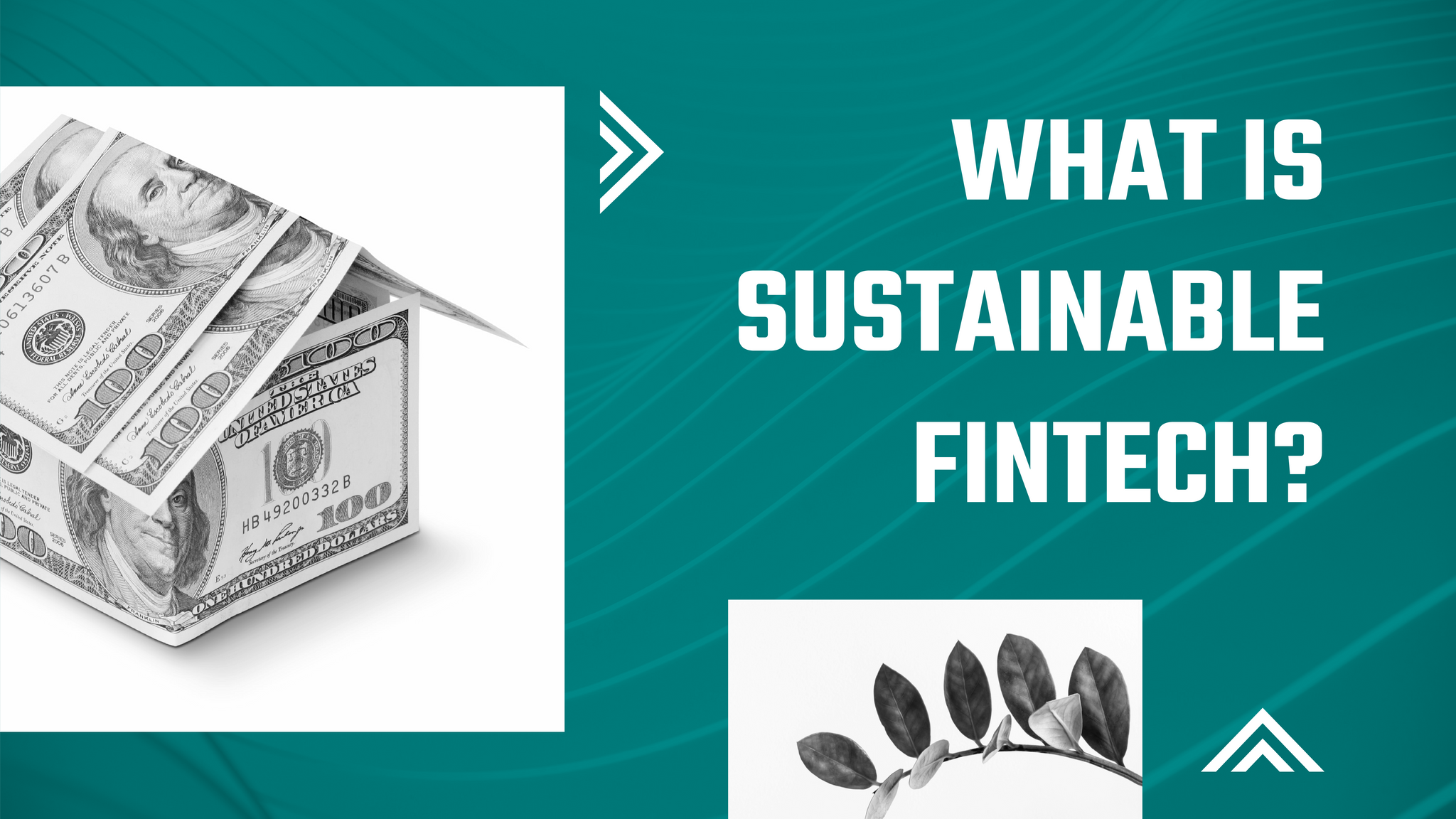Sustainable Fintech – A Clarification
Brian Collins
Published on

You’re almost certainly used to seeing the word “sustainable” preceding an increasing number of products and services. From aviation fuel to business loans, sustainability is becoming a necessary consideration.
Finance, however, tends to get lost in the list of things we know need to change but haven’t yet figured out how to. Fintech is no different. Just as legacy financial institutions are starting to attempt to embrace ESG criteria, so too are startups.
“Sustainability” may be viewed as a subjective term, but, in reality there is a template that already exists defining it in the form of the United Nations’ Sustainable Development Goals (SDGs). Fintech can enhance sustainability by forwarding three key themes: financial wellbeing and inclusion; financing sustainable growth and resilience; and supporting sustainable business practices and communities. Taking these into account, we can say that of the 17 SDGs, eight can be either directly or indirectly influenced by fintechs and the deployment of financial innovation.
As noted above, one key motive of sustainable fintech is to promote financial wellbeing and inclusion. Innovation can help a greater audience access financial products and offer economic security.
Furthering this goal supports four of the SDGs: Good Health and Wellbeing (SDG 3), Gender Equality (SDG 5), Decent Work and Economic Growth (SDG 8) and Reduced Inequalities (SDG 10).
These goals could just as well be pursued by legacy financial firms. Fintechs, however, with a greater focus on forward-looking technology, can address these issues from a slightly different angle, and often much faster.
When seeking to improve financial inclusion attention is often drawn to unbanked populations in emerging markets. Increasingly, however, these groups have access to some form of technology – mobile phones being a prime example. Fintechs can respond to this by being nimble enough to develop solutions specifically tailored to this audience. There is little legacy infrastructure tying their hands.
Just like legacy financial institutions adopting sustainability, many fintechs will also have the goal of financing sustainable growth and resilience. This forwards two of the SDGs – the improvement of Industry, Innovation and Infrastructure (SDG 9) and Climate Action (SDG 13).
There are a number of ways this could work in practice. Fintechs could essentially become technology providers for traditional lenders looking to “green” their loan books. Artificial intelligence or blockchain could be deployed to help assess lending activities, vetting loans and weeding out those deemed unsustainable.
Alternatively, fintechs aimed at retail audiences could offer these customers the chance to invest in sustainable projects they otherwise wouldn’t be able to access. Think humanitarian efforts or the funding of renewables deployment.
There’s a segue here into another key goal of sustainable fintech – the encouraging of sustainable business practices and communities. Fintechs enabling individuals to track their own sustainability footprint – for example, by providing information about the carbon emissions of purchases – can help further two additional SDGs: the striving for Sustainable Cities and Communities (SDG 11) and the encouragement of Responsible Consumption and Production (SDG 12).
Sustainable fintech maintains the same principles of sustainable finance and embraces the ambitions of the SDGs. Where it differs, however, is in its use of technology to reach and empower different audiences. This allows it to forward sustainability by addressing the three key themes previously mentioned – financial wellbeing and inclusion; financing sustainable growth and resilience and supporting sustainable business practices and communities.
Over the next month we’ll be publishing more information around the benefits, urgency and importance of sustainable fintech. Stay tuned for more in this space.
